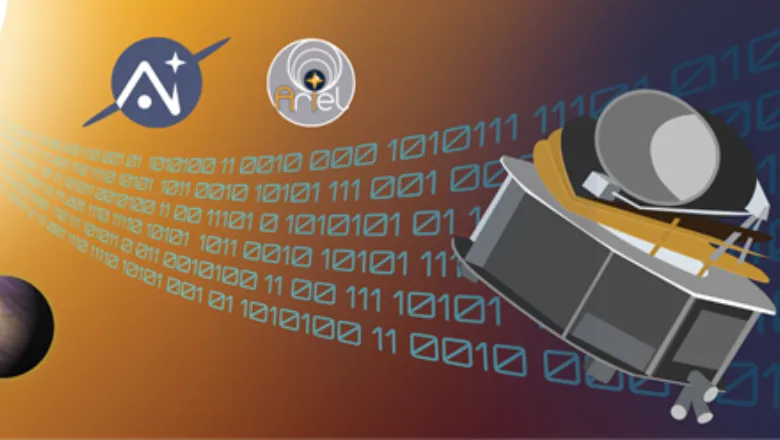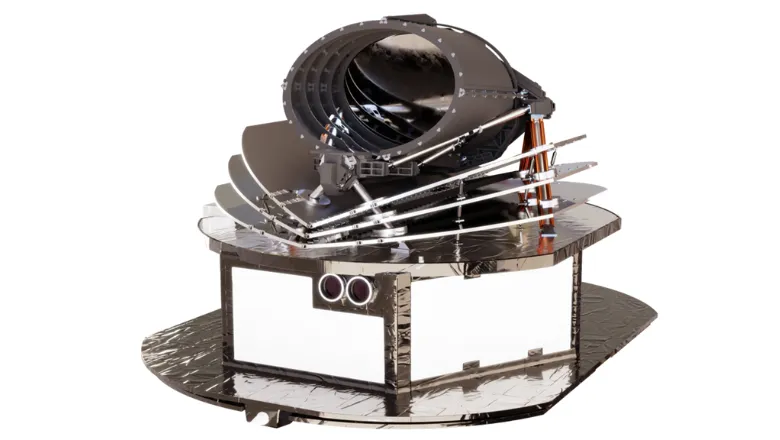The Ariel Data Challenge 2025, led by a joint initiative between King's and UCL, will help revolutionise the atmospheric analysis of planets beyond the solar system.

King's is at the forefront of the sixth edition of the Ariel Data Challenge to help scientists gather accurate data on the atmospheric conditions of planets beyond our solar system.
Built on the European Space Agency's Ariel Space Telescope that will be launched in 2029 to survey the atmospheres of over one thousand known exoplanets, the challenge has brought together over 6,000 members of the academic community with data science platform Kaggle to tackle one of astronomy's most difficult challenges.
The study of exoplanet atmospheres represents a crucial step toward understanding planetary formation and identifying worlds that could harbour life, but the signals researchers seek are often millions of times fainter than the light from the stars they orbit.

Furthermore, 'jitter noise', disturbances to instrument readings created by small vibrations on the spacecraft housing the spectrometers and other tools used for observation, complicates atmospheric analysis.
To counter this noise, scientists have been using machine learning, a branch of artificial intelligence, to identify patterns within this complex pool of data that may give clues to an exoplanet's atmospheric composition. However, because an AI model's performance is dependent on the quality of its training data, without a broad range of training scenarios it lacks applicability outside a narrow range of contexts. This is a serious problem when faced with a range of physical phenomena encountered in space exploration.
Ariel will be transformational in helping us understand the planets in our galaxy. By studying hundreds of diverse worlds in different environments, we will see our own planet in context, giving us a better sense of why Earth formed as it did."
Professor Giovanna Tinetti
By allowing the scientific community to train their ML models on realistic simulated data replicating the atmospheric readings of exoplanets captured on inflight missions, the Ariel Data Challenge provides an arena for global partners to come together to advance understanding of exoplanet atmosphere composition and weather.
Professor Giovanna Tinetti, Vice Dean (Research) for the Faculty of Natural, Mathematical & Engineering Sciences at King's and Principal Investigator for the ESA Ariel Mission consortium said: "Ariel will be transformational in helping us understand the planets in our galaxy. By studying hundreds of diverse worlds in different environments, we will see our own planet in context, giving us a better sense of why Earth formed as it did.
The Ariel Data Challenges have become an unmissable annual event, calling for help from the international community of machine-learning experts to develop a diverse range of solutions to the complex computational problems faced by the mission"
The current competition runs until late October and will recognise winners with invitations to present their solutions at the prestigious Neural Information Processing Systems conference in San Diego, alongside cash prizes for the top six innovations.
This year we focused most of our efforts on making our competition as realistic as possible. We can't wait to see the diversity of solutions the community has to offer!"
Dr Kai Hou (Gordon) Yip, the Ariel Data Challenge Lead from the London Centre for Space Exochemistry Data
Reflecting on the how the challenge this year compares to those of the past, Dr Kai Hou (Gordon) Yip, the Ariel Data Challenge Lead from the London Centre for Space Exochemistry Data said, "Building on our experience from last year, this year we focused most of our efforts on making our competition as realistic as possible. We can't wait to see the diversity of solutions the community has to offer!"
The challenge will be led by the London Centre for Space Exochemistry Data, a King's-UCL joint collaboration, alongside an international consortium of academic partners including Cardiff University, Centre National d'Études Spatiales, Sapienza Università di Roma, and Institut d'Astrophysique de Paris.
The initiative receives support from Kaggle's Competitions Research Program, and substantial backing from major space organisations, including the UK Space Agency, European Space Agency, STFC RAL Space, and STFC DiRAC HPC Facility.
Ariel is the fourth Medium Class Mission in the European Space Agency's (ESA) mandatory Science Programme. The science instruments and the data processing are being designed, built and tested by a UK-led international consortium, with contributions from 16 ESA countries (UK, Italy, France, Poland, Belgium, Spain, Portugal, Austria, Hungary, Czech Republic, Denmark, Ireland, the Netherland, Estonia, Sweden, Norway), plus contributions from NASA, the Japanese Space Agency (JAXA) and the Canadian Space Agency (CSA).






